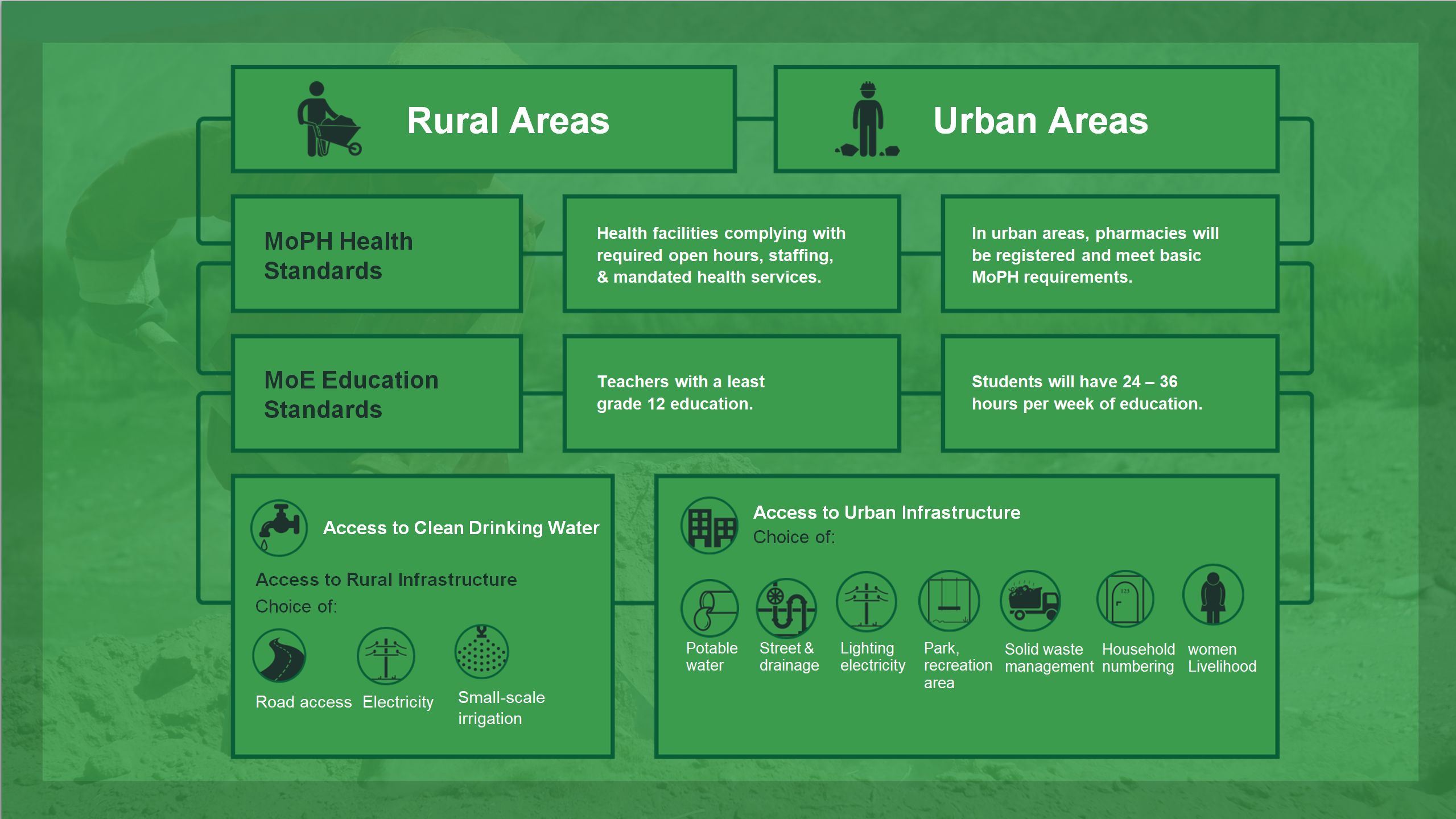The Citizens’ Charter is a foundation for realizing the government’s self-reliance vision. It is a promise of partnership between the Afghan state and its thousands of communities. The Charter is a government commitment to provide every village and city in Afghanistan with basic services, based on community’s own prioritization. Built around the use of united community-level budgeting and financial reporting, under the Charter, communities oversee their own development goals, monitor the quality of service delivery, and report grievances to authorities and civil society. The Charter promotes inclusive development and accountability at all governance levels. It gives a voice to vulnerable groups such as women, returnees, and the poor. And it provides a positive Afghan government presence in areas that have previously only known lawlessness and poverty.
The Citizens’ Charter was first introduced in the “Realizing Self Reliance” policy paper. Afghanistan has over 15 years of successful community development experience, most notably from the NSP, but also from other government and non-governmental programs that have built partnerships with communities. These successful partnerships underpin the Citizens’ Charter, which will transform individual projects into a sustainable program across Afghanistan.
Community Development Councils:
Community Development Councils (CDCs) are the heart of the Citizen’s Charter. They are tasked with planning, negotiating, and managing development investments. Through NSP, 35,000 CDCs were established across Afghanistan. They implemented nearly $2 billion dollars of infrastructure projects, with an average return on investment of 35% and almost 30% of their costs and labor being contributed by communities themselves, a reliable sign of their popularity at the grassroots. The Councils are trained in financial management and bookkeeping, and in basic principles of transparency, participation, and accountability. Independent evaluations repeatedly showed that no other project could approach NSP’s ability to provide cost-effective, large-scale service delivery even in hard-to-reach parts of rural Afghanistan.
Through the Citizens’ Charter, CDCs are democratically elected and trained to implement basic development projects. Grants for the projects are transferred directly from the Ministry of Finance to each individual community bank account. With the oversight of the Ministry of Rural Rehabilitation and Development (MRRD) in rural areas and the Independent Directorate for Local Governance in urban areas, CDCs directly implement project in their own village.
Minimum Service Standards:
One of the things which makes Citizen’s Charter different from its predecessor National Solidarity Program is the Minimum Service Standers. Unlike, NSP though Citizen’s Charter the whole community will have minimum of defined and set standards and will have access to basic services. These services are monitored and reported on by communities through citizens’ Scorecards. Services provided through the Charter will include:

|